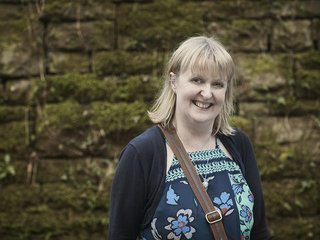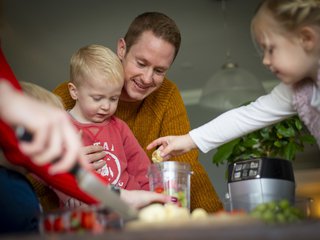Coping with your feelings
It’s natural to have mixed feelings about being on active monitoring (watch and wait). On the one hand, it’s good that you don’t need treatment. On the other hand, it’s hard to take in, and explain to others, that you have cancer but aren’t being treated for it.
Managing difficult feelings
Being told that you have blood cancer but don’t need treatment can be tough emotionally. Some people talk about feeling like a “fake” cancer patient when they are on active monitoring. Others say they feel they’re not in control, because they don’t know if and when they’ll need treatment.
However you’re feeling, you’re not alone. And there are things you can do to manage these difficult feelings.
Talk to your doctor or nurse if you feel anxious about being on active monitoring. They may be able to reassure you about some of your concerns. They can also refer you for counselling or other professional support, which many people find helpful.
Our support service team talk to lots of people on active monitoring. You can call free on 0808 2080 888 or email [email protected].

Coping with your emotions
How Kate's new approach has managed to turn a negative into a positive
8 tips for coping with anxiety
We asked people on active monitoring how they deal with the emotional and psychological impact of delaying treatment while living with blood cancer. Here are some of the things that help them stay positive.
1. Talk to the people you love
If you have the support of family and friends, don’t be afraid to embrace it and share your worries or concerns with those close to you. Sometimes, just spending time with the people you love can make all the difference.
2. Look for peer support
It’s not just those close to you who can offer valuable support. Some people treat being on active monitoring as an opportunity to find others who are going through a similar situation.
Find out more about peer support services or visit our online community forum to talk to other people on active monitoring.
3. Make use of support organisations
There are also plenty of support networks you can access through charities and organisations across the UK and beyond.
Our support service is here for anyone affected by blood cancer. You could also ask your hospital team about local cancer support services.
Elaine found fantastic support at her local Maggie’s centre: “Watch and wait can be stressful, but I found going to Maggie’s really helped me control the anxiety.”
4. Appreciate the good things
You don’t have to be positive all the time; everyone has their bad days. But some people find that their diagnosis actually helps them appreciate the little things in life, and this positivity can help to keep worries at bay.
5. Take each day as it comes
For some people, focusing on the here and now can stop them worrying too much about the future.
“I can’t do anything about yesterday or tomorrow, so I do what I can with this day and I will deal with any eventuality when it comes,” says Kit.
6. Look after yourself
Another way to stay relaxed and positive is to take care of yourself – both physically and mentally. Keeping active and eating well can help you feel well and reduce stress. And if you do need treatment in the future, it will mean you’re as well as possible to cope with treatment and side effects.
“I work out as much as I can to stay in good shape, if the time comes for treatment,” David says. “I feel very blessed to be in this situation compared to a lot of people receiving treatment.”
7. Don't be afraid to access counselling
Counselling can really help, particularly if you’re worried about sharing everything with your loved ones. Bethan found it takes a great weight off her chest: "It’s a moment in time to offload and say what you really feel and fear; a time to reflect without protecting those you love."
8. Trust your healthcare team
It can be hard to accept that delaying treatment can be a good thing, but having faith in your healthcare team, and the years of research that show active monitoring is safe, can help to put your mind at rest.
Vivien has found this really empowering. “Every time I see my consultant he assures me that the side effects from chemo can be a lot worse than no treatment and, as I am doing well, it's best to leave treatment well alone,” she explains. “Now, I feel very lucky to be on watch and wait.”

Living well
Practical tips and real stories to help you with everyday life.
